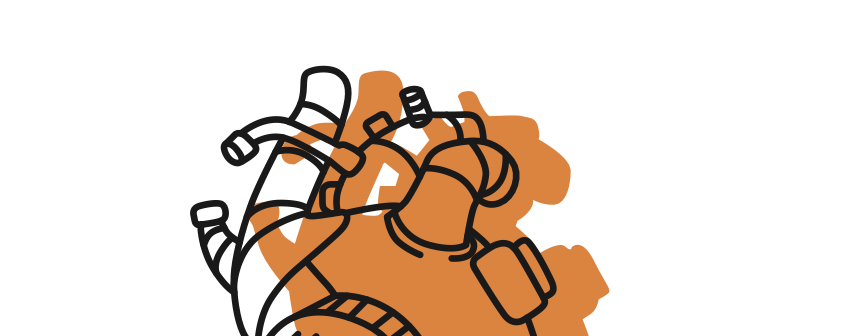
The Robots are Coming
(Autumn 2021)
Notes, written. Rehearsals, completed. Material, recorded. One idea that has pestered Michał Górczyński for years, sees the light of day.
10 tracks with notated robot behavior and sounds, ready. This is William’s Things new album.
Selected micro-spirituality of the contemporary world, discovered.
The Robots are Coming is the same title of a poem by the American poet Kyle Dargan.
The future is such, that this is just the prelude to more advanced models of robots, which will subtely enter into a musical and theatrical relationship with creators and the public.
Masked mechanics, metal sublimation, emitting micro-emotions from engines, poetry instead of programming and speed instead of plastic. Let a war with the machines forever remain an exaggerated and imperfect vision.
Just beauty at the connectors, which sleeps without motion and lacking power.
- Michał Górczyński

This is the first time William’s Things has collaborated with living* poets
*a human and a computer program
The lyrics for T.R.A.C. by:
Kyle Dargan
Kyle Dargan was born in Newark, New Jersey. He earned his BA from the University of Virginia and MFA from Indiana University, where he was a Yusef Komunyakaa fellow and poetry editor of the Indiana Review. He is the author of four collections of poetry: The Listening (2004), which won the Cave Canem Prize, Bouquet of Hungers (2007), awarded the Hurston/Wright Legacy Award in poetry, Logorrhea Dementia (2010), and Honest Engine (2015). His poems and non-fiction have appeared in newspapers such as the Newark Star-Ledger, and journals such as Callaloo, Denver Quarterly, and Ploughshares, among others. In 2019 he received the Lenore Marshall Poetry Prize from the Academy of American Poets.
Former managing editor of Callaloo, Dargan is also the founding editor of the magazine Post No Ills. He is the Director of Creative Writing at American University and lives in Washington DC.
POEMS BY KYLE DARGAN
M. Vincent van Mechelen/Q Basic
"I am a native of the Netherlands who also lived and worked in Canada. My first flirtation with computers started when i -this regular small i is an Idiosyncrasy of mine- was about nineteen years old and studied landscape architecture. In the era of the punched cards and plotter i wrote a FORTRAN program to have a university main frame computer draw perspectives of buildings. Another subject i majored in was English language and literature. I started this study at a teacher training college at which i wrote a paper on computer poetry with an example of what i had developed myself. It was a collection of 'motion poems' which was shown in a text trailer on the 40- to 80-character-wide screen at the time. A Finger of Value, which William's Things have incorporated into their third album, is a poem from this collection. Like all poetry, it had to distinguish itself from 'mere' prose by its literary register, use of imagery, graphic handling of lines and/or creation of aural effects. In those days you did not have digital dictionaries with the pronunciation of words as well, so that you could have included rime schemes (if you intended to). Far easier was it to play with (line-internal) alliteration. Thus, my digital project called "A Hand with Myriad Digits" led to the creation of my own 'manual' Vocabulary of Alliteration, needed because i also wanted something more pleasing than effects of the rough-and-ready type. I was one of the first two hundred people who had a private internet connection in the Netherlands, and soon began to use this medium to publish most of my work (among which the Vocabulary and non-computer-generated poetry in three different languages). It is there where William's Things found me too. Meanwhile, -should that be of any relevance- i have grown to be 49, in hexadecimal code, that is."


